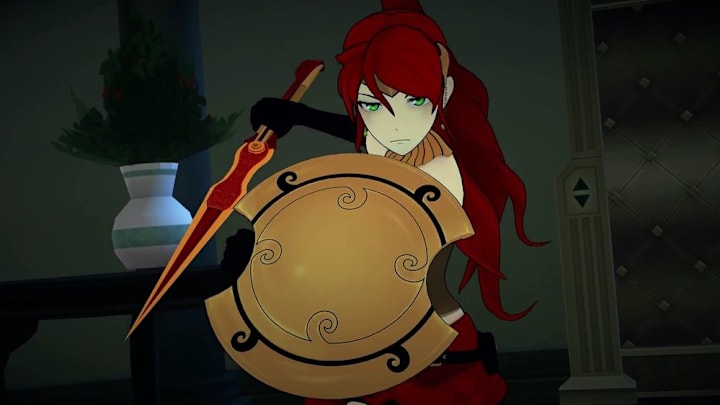
9) Roman Torchwick
In the world of RWBY, Roman Torchwick's demise brings out the series' dark humor, marking an important yet slightly comical moment in the series. Roman, with his flamboyant style and sharp wit, had become a fan-favorite villain, known for his Clockwork Orange aesthetic and charismatically evil demeanor. His death comes unexpectedly, leaving viewers in a state of shock and laughing their butts off. Torchwick is in the middle of delivering a very stereotypical monologue to Ruby Rose, one of the main protagonists, expressing his cynical worldview when he's abruptly cut off mid-sentence by a Griffon, one of the Grimm creatures, who suddenly attacks the airship. In one shocking swoop, the Griffon scoops up and devours Roman Torchwick whole, effectively ending his role in the series. It's a classic case of dramatic irony where Roman, who always seemed one step ahead, meets his fate in the most unpredictable way. This moment is emblematic of RWBY's ability to combine different tones, turning what could have been a straightforward villain's end into something more memorable and pretty amusing.

8) General James Ironwood
General James Ironwood's death in RWBY is a bittersweet moment that goes pretty well with the complexity of his character. I will never get over how fast I went from becoming an Ironwood fangirl to putting him out with the trash on a Thursday night.
Ironwood, once a steadfast and honorable leader, embodies the tragic hero who falls from grace. His initial intentions, rooted in the protection of his people and the greater good, were admirable and earned him respect. But, the path he chooses to achieve his goals marked by fear and paranoia, slowly transforms him into what he once stood against. This transformation is painful and frustrating because it shows how even the best of us can be consumed by our own demons when faced with overwhelming challenges. Ironwood's journey is a reminder of the fragile balance between duty and morality, and how the weight of responsibility can sometimes consume and get the best of even the most well-intentioned people.
His death, while sad, does give us a bit of satisfaction. It serves as a closure to his personal arc, bringing an end to the chaos and conflict he inadvertently fueled. Killed when the floating city of Atlas crashed into its mainland counterpart, Mantle, there's a sense of poetic justice in his death, as it symbolizes the end of his misguided crusade and the supposed restoration of balance. It's a reminder that actions have consequences, and sometimes those consequences are irreversible. While it's difficult to truly celebrate his end, it's slightly satisfying to see the conclusion of a storyline that illustrates how power and fear can corrupt. Ironwood's death is not just the end of a character, but a powerful display of the complexities of leadership, the cost of good intentions gone sideways, and the tragic downfall of a hero-turned-antagonist.
